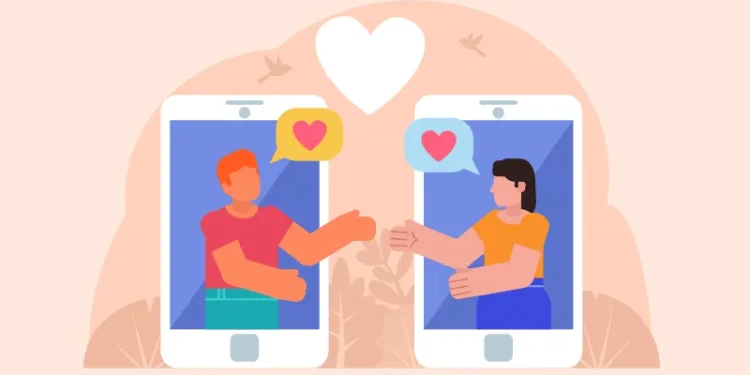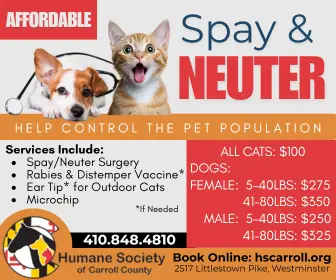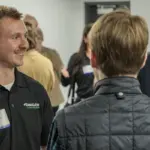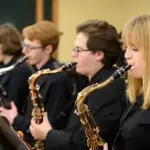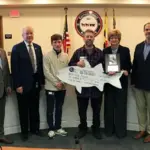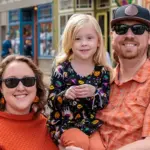by Linda L. Esterson
“You’re going to marry my best friend.” “Oh really, can I meet him first?” That conversation preceded my blind date with my husband of 35 years, arranged through a mutual close friend.
For generations, people have attempted to make connections to create a successful couple. Some cultures have historically arranged marriages and included a dowry paid to the male. Other cultures have relied on friends and family members to introduce prospective partners and arrange a blind date, with the parties meeting sight unseen, hoping an attraction and, subsequently, a relationship would develop.
In the mid-1960s, the ABC network introduced “The Dating Game,” which televised a single woman’s introduction to three prospective suitors she didn’t know and couldn’t see. In modern times, television producers have continued the trend of pairing couples, although not without their meeting, with shows like “The Bachelor,” “The Bachelorette,” “Are You the One?” and the “Golden Bachelorette.”
Around the same time, college campuses around the country started their own form of matchmaking, distributing questionnaires to students in the hopes of connecting them to eligible prospects with common interests. Newspapers ran classified advertisements for singles searching for love and companionship.
Today’s advances in technology have spawned a myriad of online dating sites. Some prove successful in pairing couples who eventually wed, while others feature misrepresentations of those unsuccessful in finding love.
While many turn to dating sites, some still prefer a traditional method — the blind date — relying on the endorsement and vetting offered by someone known to them.
“This can be helpful, especially if someone who knows you well is doing the ‘setting up,’” explains Kimberly Rhoton, LCSW-C, a licensed clinical therapist in Westminster. “If a friend, co-worker or family member has a suggestion for a potential ‘match’ and wants to set you up on a blind date, consider it. Even if it doesn’t work out to be lasting love, it can be good practice and can get people out of their dating ruts and can be fun.”
Cathy Orzolek-Kronner, a psychotherapist with Cedar Ridge Counseling Center in Westminster, says the blind date provides an element of sincerity not often found with online profiles.
“It’s often more of an authentic conversation when you’re agreeing to the blind date,” she explains. “It removes the tension; if it’s awkward, that’s OK because you’ve got your friend covering for you.”
The Best Friends
When she was home from college for the summer, Taneytown native Liberty Kramer agreed to meet her best friend’s boyfriend’s best friend. Their meeting wasn’t posed as a request; it was stated as fact.
“I knew his name, and he knew my name, and that was it,” she says. “They wouldn’t tell us anything other than ‘we think you’d get along well.’”
Kramer admittedly didn’t know what he looked like or his interests. Instead of researching him online like most of today’s singles, she trusted her best friend, thinking someone would be a good match for her. The date featured the four of them eating in Gettysburg, Pennsylvania, and strolling afterward for ice cream. After initial awkwardness, they found themselves chatting alone on the walk to the ice cream shop.
After the date, they spoke by phone and made plans to see each other again. “We started hanging out more, and it developed into a relationship,” she explains.
They remained together for about eight months before he moved to New York. Kramer was not interested in becoming a New Yorker. If he hadn’t moved, she says, they could still be together today.
The Sorority Set Up
Steven* and a longtime girlfriend ended their relationship. They were college sweethearts, a year apart. As he prepared for graduation, he looked forward to starting his career. His girlfriend, a year his junior, had sorority formals and fraternity parties ahead of her. Steven realized their paths were diverging.
With a few months of his senior year remaining, a friend suggested he meet another girl in a sorority different from his previous girlfriend. He hesitated, as it was just a month after the breakup, but he agreed to the date. He texted the girl, and they went to Dave and Buster’s for drinks and arcade games. The venue was 30 minutes from school, so there was little chance to run into anyone else from Greek life who would spread gossip.
The evening proved enjoyable as the drinks flowed and the arcade game competition evolved. “We were having a fantastic time,” Steven says. “She started opening up to me because she understood I just got out of a relationship. She had been dating someone long distance, and they had just ended.”
As they joked and shared, the conversation turned more serious.
“We both sat there, and you could just kind of feel that we were both self-reflecting on the things that we had done wrong in our previous relationships, and it just became apparent that we were both caught up on our exes,” Steven recalls. “The whole internal dialogue was so loud between ourselves. ‘What are we doing?’ ‘Are we trying to get over our exes by going out and on a date with another person this quickly?’”
Both agreed they were far from ready to date again. “It ruined the date for both of us. We missed our exes. But it taught me a lesson. You’re never going to have a great relationship with another person until you hash out and resolve your previous ones.”
The Narcissist
After graduating from McDaniel College, Lauren Hawkins arranged to meet a guy at a restaurant in Baltimore City. The gentleman talked about himself for nearly three hours.
“He never even asked me how my day was,” she says. “He did not even ask ‘How are you?’ There were no pleasantries.”
Hawkins pretended to need to leave to help her sister, and they walked out of the restaurant. She was unfamiliar with the city and needed help finding the bus stop for a different line than she usually rode to return home. She was looking at a map and expressed that she was lost.
“‘OK, my car is that way,’” he told her and departed.
Her phone battery had drained. Hawkins walked around, trying to find the bus stop. She found a hostel, explained her predicament and was invited to “pizza night.” She used the hostel’s phone and called her mother.
“I ended up spending the time hanging out with this eccentric old man singing Whitney Houston and playing the piano, and then a bunch of high schoolers on a field trip talking about bad dates,” she recalls.
The guy texted her a few days later, telling her she ‘was great and all’, which he didn’t know because he never asked. ‘I’m just not attracted to you.’ He felt the need to get that one last little zinger in there.”
As Awkward As They Come
Francis* considers a recent date, arranged through the dating site Plenty of Fish, the equivalent of a blind date. He connected with a woman who, like himself, had no social media or online presence.
After a few emails, they agreed to meet at a restaurant in Columbia. They chatted and then shared about their families. Francis explained that his son had recently been in a car accident.
“He must have been trying to kill himself,” she remarked.
“Needless to say, the meal and meeting was over within a couple of minutes of that being mentioned,” Francis says. “It was ‘I don’t agree with what you’re saying. I’m offended by that. And yeah, we’re obviously not going to be a match, so thanks for meeting me. I wish you well.’”
After he got over his anger, Francis chose to laugh about it. Despite this “cringy” date, Francis is open to being set up on future blind dates by friends.
“It’s magical; it’s like, ‘Wow, I’m opening a present,’” he says. “Getting to know someone is fantastic. It’s a wonderful thing, especially if it’s the right person…. It’s the interpersonal, the give and take that, I think, is one of the most wonderful parts of that whole process.”
With today’s influx of dating websites, it’s easy to log on and view informational posts created by potential dates. However, the viewer is at the mercy of what the posters share in their profiles. There could be a dated photo shaving off years or errors of omission about quirky interests, former jobs or worse.
The blind date, however, has endured. It’s like a third-party endorsement from someone who knows both of you and understands your parameters for the perfect date.
When our mutual best friend connected me to my husband, we trusted him because we had known him for years — me throughout college and my husband since childhood. While we didn’t have the benefit of text exchanges or emails in advance of our first meeting, we had the full support of — and encouragement from — the person we trusted most.
We learned about each other, with each other, during one telephone call before our first date to see a comedian-impressionist in downtown Baltimore. Our relationship developed generically, and our mutual best friend became our best man. He still takes the credit for our successes — and the blame when things go wrong.
*Editor’s Note: The names of some of those interviewed were changed at their request to preserve anonymity.

